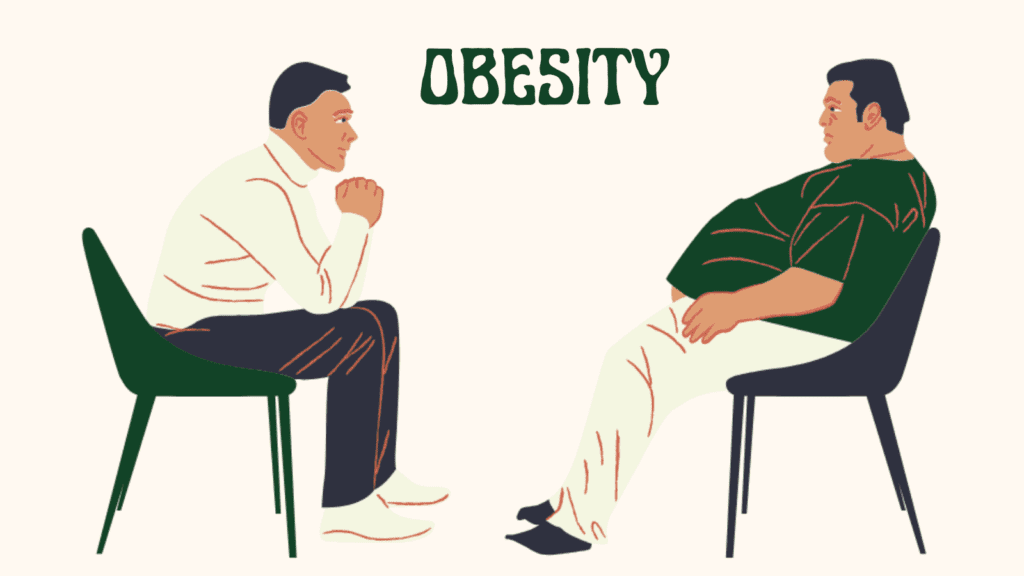Understanding the Global Epidemic of Obesity

Introduction
Obesity has become a global epidemic, affecting millions of people worldwide. It is not just a cosmetic concern but a serious medical condition that can lead to various health problems. In this blog post, we will delve into the causes, consequences, and potential solutions for obesity.
What is Obesity?
Obesity is a medical condition characterized by an excessive accumulation of body fat. It is typically measured using the Body Mass Index (BMI), which is a ratio of a person’s weight to their height. A BMI of 30 or higher is considered obese.
Causes of Obesity
- Poor Diet: One of the primary causes of obesity is an unhealthy diet high in calories, sugar, and saturated fats. Consuming processed foods and sugary drinks regularly can lead to weight gain.
- Lack of Physical Activity: Sedentary lifestyles, where people engage in minimal physical activity, can contribute to obesity. Spending long hours sitting at a desk or in front of a screen can lead to weight gain.
- Genetics: Some people may be genetically predisposed to obesity. Genetic factors can influence metabolism and how the body stores fat.
- Environmental Factors: The environment in which one lives can play a significant role in obesity. Limited access to healthy food options, lack of safe places to exercise, and cultural factors can all contribute to weight gain.
Consequences of Obesity
Obesity is associated with a wide range of health problems, including:
- Heart Disease: Obesity increases the risk of heart disease, including hypertension, high cholesterol, and coronary artery disease.
- Type 2 Diabetes: Obesity is a leading cause of type 2 diabetes, a chronic condition that affects the body’s ability to regulate blood sugar levels.
- Joint Problems: Excess weight places added stress on the joints, leading to conditions like osteoarthritis.
- Sleep Apnea: Obesity is a common cause of sleep apnea, a condition characterized by interrupted breathing during sleep.
- Mental Health Issues: Obesity can lead to depression, anxiety, and low self-esteem due to social stigma and body image concerns.
Solutions for Obesity
Addressing obesity requires a multifaceted approach:
- Healthy Eating: Focus on a balanced diet rich in fruits, vegetables, lean proteins, and whole grains. Avoid excessive consumption of sugary and processed foods.
- Regular Exercise: Incorporate regular physical activity into your daily routine. Aim for at least 150 minutes of moderate-intensity exercise or 75 minutes of vigorous-intensity exercise per week.
- Behavioral Changes: Identify and address emotional and psychological factors that may contribute to overeating or a sedentary lifestyle.
- Medical Intervention: In some cases, medical interventions such as weight loss medications or bariatric surgery may be necessary under the guidance of healthcare professionals.
- Support and Education: Seek support from healthcare providers, dietitians, or support groups that specialize in obesity management.
Tips for Long-Term Success
Maintaining a healthy weight and preventing obesity requires ongoing commitment and lifestyle changes. Here are some additional tips for long-term success:
- Set Realistic Goals: Establish achievable and sustainable goals for your weight loss journey. Slow, steady progress is often more effective and easier to maintain than rapid weight loss.
- Monitor Your Progress: Keep track of your diet, exercise, and weight changes. Journaling or using a mobile app can help you stay accountable and make necessary adjustments.
- Build a Support Network: Surround yourself with friends and family who support your efforts. Sharing your goals and challenges with others can provide motivation and encouragement.
- Mindful Eating: Practice mindful eating by paying attention to your body’s hunger and fullness cues. Avoid emotional eating and aim to savor your meals.
- Get Professional Guidance: Consult with healthcare professionals, including dietitians, nutritionists, and fitness trainers, to create a personalized plan that suits your needs and goals.
- Stay Informed: Keep up-to-date with the latest research and recommendations on nutrition and exercise. Science is constantly evolving, and new strategies may emerge to help you on your journey.
- Be Patient and Kind to Yourself: Weight management is a lifelong endeavor, and setbacks are normal. Instead of dwelling on mistakes, use them as learning opportunities to refine your approach.
- Prioritize Sleep: Quality sleep is essential for maintaining a healthy weight. Aim for 7-9 hours of restorative sleep each night.
- Manage Stress: High levels of stress can lead to emotional eating and weight gain. Practice stress-reduction techniques such as meditation, yoga, or deep breathing exercises.
- Stay Hydrated: Drink plenty of water throughout the day. Sometimes, thirst is mistaken for hunger, leading to unnecessary snacking.
Conclusion
Obesity is a serious health concern that affects millions of people, but it’s a condition that can be managed and, in many cases, prevented. By making informed choices about diet and physical activity, seeking support when needed, and adopting a patient and positive mindset, individuals can take control of their health and work towards a healthier and happier life.
Remember that the journey to overcoming obesity is unique for each person. It’s not just about losing weight; it’s about improving overall well-being and reducing the risk of associated health problems. Small, consistent changes in your lifestyle can have a big impact on your health in the long run. Start today, and take the first step towards a healthier, happier you.
Disclaimer: This blog post is for informational purposes only and should not be considered a substitute for professional medical advice. Always consult with a healthcare provider for a proper diagnosis and personalized treatment plan.
Stay updated—subscribe now for informed empowerment!

